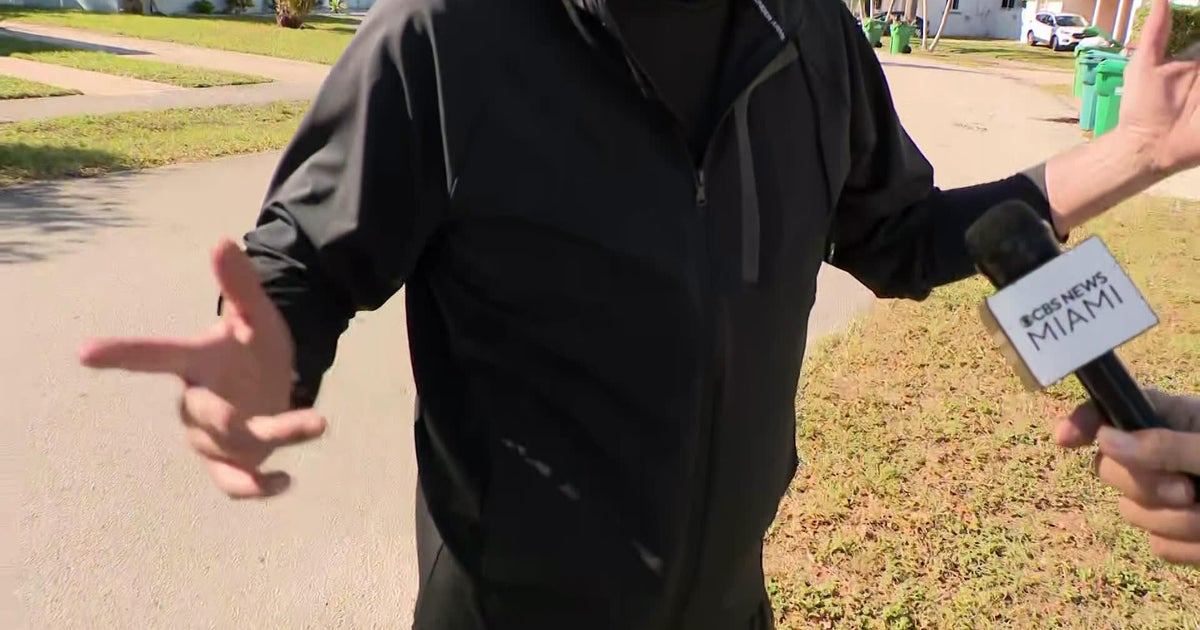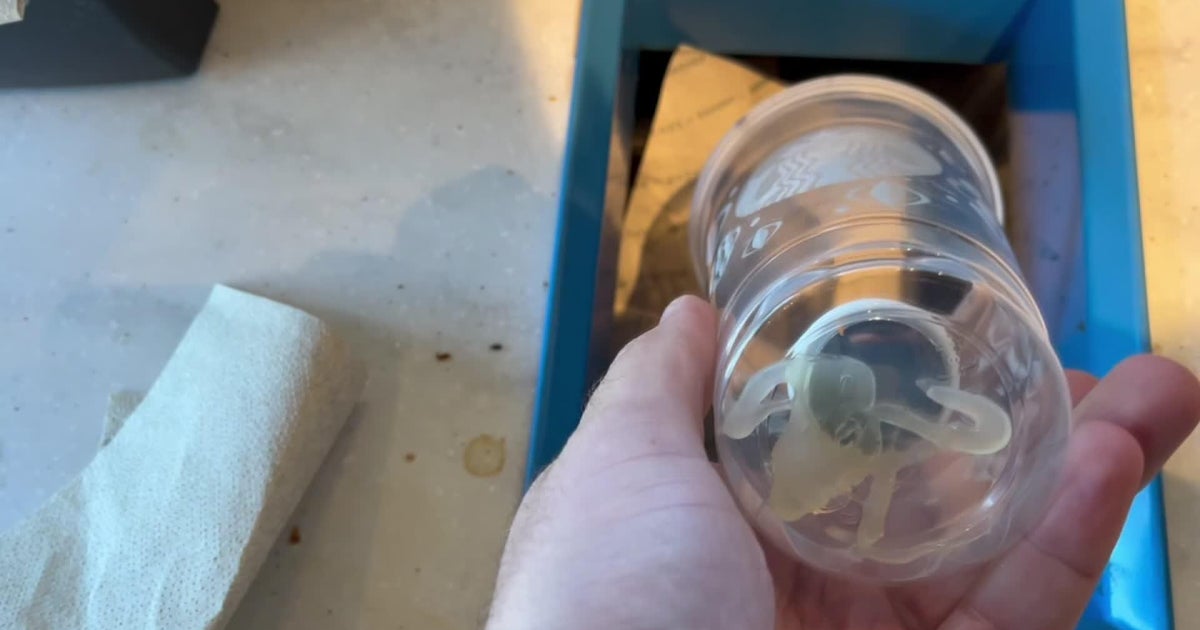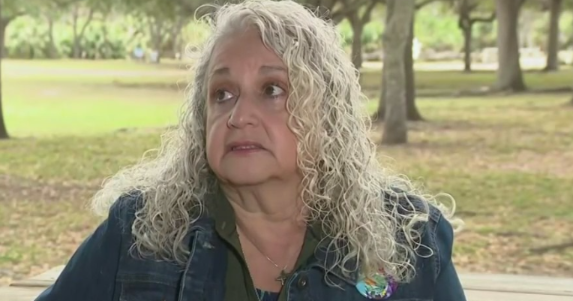CBS4's Michelle Gillen Revisits The Forgotten Floor
MIAMI (CBSMiami) -- "It's too small, it's too tight, it's too overcrowded and people get worse. And it shouldn't be that way. They are sick." That's how Miami-Dade Judge Steve Leifman described one of the most notorious floors of a jail in America. Insiders have long called it 'the Forgotten Floor'. It's home to inmates suffering from mental illness.
"Now some of the people have committed crimes, and they need to be in jail. But that isn't what this is about. The problem is the facility is still inappropriate. The conditions are still horrific, people should not be there that are sick."
Considered one of the nation's leading advocates for the mentally ill, Leifman never forgets the inmates of the Miami-Dade jail which sits in the shadow of the city's glistening skyline. Three floors of the jail are now filled with men and more recently women, all suffering from mental illness and in need of treatment.
They have all been arrested, some for misdemeanors, most for low level felonies.
"This is about taking people who we know are going to be released, and getting them into recovery and then in a facility, where they can recover and this is not it," said Leifman.
The jail's most controversial floor remains the 9th floor. It houses those considered most critically ill including suicide risks. They live in their cells and are transported back and forth to court naked but for green gauze vests, called Ferguson gowns.
Following seven years of requests to the Miami-Dade Department of Corrections and Miami Dade County, CBS4's Chief Investigative Reporter Michele Gillen recently was granted access to return to the floor to document current conditions.
As the judge described his recent visits to her, "Many days there are two to three people in that cell. It's not a place for treatment. They are in there many hours a day. And so it's still not conducive for treatment and I still think it's shocking."
It was seven years ago that Leifman, outraged and alarmed over how the mentally ill were being treated and warehoused at the jail, invited Gillen and a CBS4 camera to document conditions at the jail.
During several visits at that time, inmates suffering from mental illness told Gillen, "Human beings should not be treated like this. No blankets, no beds, no mattresses'. We sleep on the floor." On one of her visits, the faucets in the cells were not working and inmates were drinking water from the toilets.
Seven years later, Gillen asked Leifman about the fact that the jail and the 'Forgotten Floor' is still home to inmates with severe mental illness.
"It's hard to believe it's been seven years. I mean when Abu Ghraib came out, there was such international outrage. It was shut down in months. But here it has gone on seven more years. The problem is the facility is still inappropriate. The conditions are still horrific. People should not be there that are sick," Leifman recently told Gillen.
Today the jail remains the largest psychiatric facility in Florida, although it is not accredited to be one.
"We are still using the jail to treat the mentally ill and that is inconceivable," said Carlos Martinez, Miami-Dade's Chief Public Defender.
"I have an employee who goes there every day and every day we go without exception it's overcrowded, every single day," an outraged Martinez shared.
"It was not built to be a psychiatric facility. It was built as a jail (a cell) for one person. And there are two and three people in there that are very psychotic. And so it is still not an appropriate place. It still needs to be changed. It needs to be shut down. And it is more than being ashamed. We don't treat animals this way, we should not treat people this way," Leifmen is convinced.
Insiders remain haunted by the nightmare of what happened to William Weaver who jumped from a second tier steel shelf bed and broke his neck after hitting the toilet. He became a quadriplegic. At the time his father had wondered what would it take to finally shut 'The Forgotten Floor' down?
"Will things ever change? I don't think so," he told Gillen seven years ago. Now, CBS4 news has learned that Weavers paralyzed son died 4 years later, from so-called complications from that fall from the bed.
Gillen ask Martinez what was learned from what happened to Weaver.
"I don't think we have learned anything. If we did, we did nothing about it," Martinez told Gillen.
"Every day that goes by and someone is sitting on that floor, they are at risk of danger or death in what goes on in that place. I don't know how many people have died in the seven years that it has taken to bring appropriate treatment," asked Leifman.
Now CBS 4 news has learned that Miami-Dade police are investigating one more death. Joaquin Cairo was a homeless man who was arrested for allegedly throwing an object at a car. Records show that on the day of Gillen's visit he was in a wheelchair and had reported that he had been thrown against his bed, the object of an attempted sexual assault. Court documents indicate he died days later, while still in custody, at a hospital. The CBS4 I-Team investigation into his case continues.
Meanwhile, there have been some important changes since the Forgotten Floor aired. No longer are inmates with mental illness being kept there, for months at a time, as CBS 4 news had discovered was the case for years. According to Florida law, they are not allowed to remain on the 9th floor for more than 15 days.
According to Martinez, "The state of Florida, as a result of your report, went ahead and put in 50 million dollars into additional beds statewide so the way the mentally ill will not be languishing like they were here on the 9th floor after they have been found incompetent to stand trial."
Other improvements pointed out to Gillen include the fact that inmates now have a plastic mattress to sleep on, instead of directly sleeping on the steel shelves.
"It took 5 and a half years to get mattresses after your report." recalled Leifman.
Escorting Gillen through the halls of the 9th floor was Captain Eddie Denison, who rose through the ranks of the jail to now be in charge.
"This floor is not designed for the kind of care that these folks need. So if they could be placed in an environment that is conducive to the treatment that would be a huge help for us here and for them," shared Denison.
Conditions Leifman said the public should care about.
"Most of these individuals are coming out; the vast majority of these individuals are getting out. And they are coming out worse they when they went in." And they can pose a danger to the public and themselves he said, while misspending tax dollars he believes.
"We are still spending almost 60 million dollars a year to warehouse them in that condition. And they are coming out in worse shape than when they went in."
For Martinez, something's got to change. But making that change happen?
"I feel powerless," admits the county's chief public defender. Leaving the inmates living in those cells, he said, "absolutely lost, lost in the system. You don't even count."



